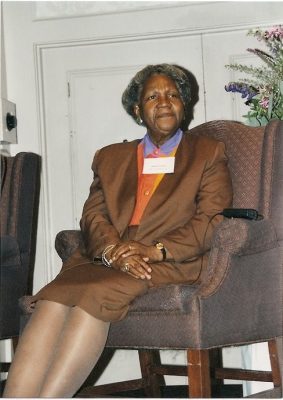Associate Research Professor Marlene Matarese has received a Fulbright U.S. Scholar Program award in Social Work to Galway, Ireland, for the 2023 – 2024 academic year, from the U.S. Department of State and the Fulbright Foreign Scholarship Board.
Matarese is the deputy director of Innovations Institute at UConn School of Social Work and specializes in evidence-based and evidence-informed intervention design; and best practices in implementation science within the context of the public child-, youth-, and family-serving systems as well as LGBTQ+/sexual orientation, gender identity, and gender expression, workforce development; and systems of care.
The focus of her work has been improving access to and the quality of systems and services for children and youth with public system involvement. Matarese is the Principal Investigator (PI) for the National Quality Improvement Center on Tailored Services, Placement Stability, and Permanency for LGBTQ+ Children and Youth in Foster Care, and the National Quality Improvement Center on Family-Centered Reunification funded by the Children’s Bureau. She is also PI for the National Center of Excellence for LGBTQ+ Behavioral Health Equity, funded by SAMHSA and the National Center for Youth with Diverse Sexual Orientation, Gender Identity, and Expression. Marlene serves as PI on other national, large-scale initiatives including the design, implementation, and evaluation of numerous best practices.
Since September 2023, Matarese has been hosted in Ireland by the University of Galway, School of Political Science and Sociology, Social Work Programme. She is leading a research project on foster care experiences of LGBTQ+ youth who have transitioned out of care from September 2023 through April 2024 entitled Exploration of LGBTQ+ Young Adults' Experiences in Ireland's Child Welfare System: Building a Foundation of LGBTQ+ Culturally Responsive Care. Additionally, as visiting faculty, she is reviewing social work practice curricula to embed LGBTQ+ content throughout, mentor students, and lecture across the region.
Matarese is among over 800 U.S. citizens who will teach or conduct research abroad for the 2023-2024 academic year through the Fulbright U.S. Scholar Program. Fulbrighters engage in cutting-edge research and expand their professional networks, often continuing research collaborations started abroad and laying the groundwork for forging future partnerships between institutions. Upon returning to their home countries, institutions, labs, and classrooms, they share their stories and often become active supporters of international exchange, inviting foreign scholars to campus, and encouraging colleagues and students to go abroad.
For more information about the Fulbright Program, visit https://fulbrightprogram.org.
Learn more about Matarese’s work.
![]()
 Ivor J. Echols, MSW, PhD, made pioneering contributions as an educator, an activist for civil rights and social justice, and an avid promoter of the social work profession. She inspired hundreds of students and as a leader, strengthened numerous community and national organizations, including the National Association of Social Workers and the National Association of Black Social Workers. Throughout her life, she worked tirelessly to combat racism and injustice, especially toward the African-American community and those living in poverty. She was a leader in national, state, and local organizations.
Ivor J. Echols, MSW, PhD, made pioneering contributions as an educator, an activist for civil rights and social justice, and an avid promoter of the social work profession. She inspired hundreds of students and as a leader, strengthened numerous community and national organizations, including the National Association of Social Workers and the National Association of Black Social Workers. Throughout her life, she worked tirelessly to combat racism and injustice, especially toward the African-American community and those living in poverty. She was a leader in national, state, and local organizations.